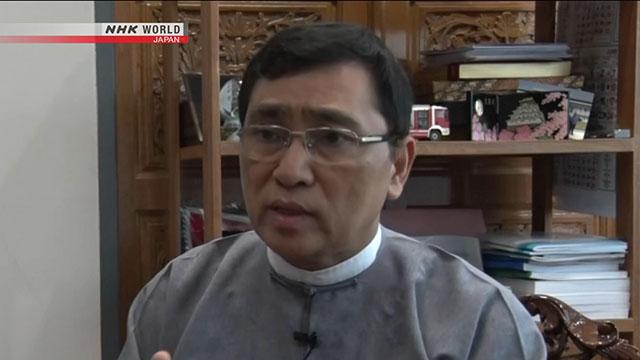The plan addresses what is being called Asia's worst humanitarian crisis this century. The mass exodus of Rohingya from Rakhine in western Myanmar followed violence in the region, including allegations against the country’s security forces of ethnic cleansing.
Win is in charge of the return and resettlement of the refugees. "The Myanmar government plans to begin the repatriation process as soon as an agreement is reached in the bilateral negotiations", he told NHK. He said everyone who was a resident of Myanmar would be welcomed back.
Under the plan, border checkpoints would be set up at two locations along the border to verify the refugees' identities. They would then be sent to shelters and return to their home villages within a few months.
The minister promised also to reconstruct villages, many of which were burnt down because of the fighting. He said the government is working under the principles of 'reconstruction', 'return', and 'a better environment than before’. “We will build new houses and roads. We’ll also set up power lines there within the next year,” he said.
Win said the resettlement would proceed in accordance with United Nations guidelines. The plan is an apparent counter to international criticism over alleged discrimination against minority Muslims in the country, something that has continued even after the transition from a military regime to a democratic government.
When US Secretary of State Rex Tillerson visited Myanmar last week, he asked State Counsellor Aung San Suu Kyi to carry out an impartial investigation into allegations that Myanmar's security forces drove the Rohingya across the border through violence and terror. Win stood by his government's claim that there was no evidence of persecution.
Japan pledges $18 million aid for Bangladesh
Japan's Foreign Minister has pledged $18 million in aid to help with the Rohingya crisis. Taro Kono offered the funds when he met with his Bangladeshi counterpart Abul Hassan Mahmood Ali this week.
Kono said his government will do what it can to help, adding Japan is negotiating with Myanmar to ensure the safe return of the refugees. He visited a Rohingya refugee camp near the Myanmar border.
"In the camp, people need water, food, medical support, as well as education. The international community has to work together to improve the situation as soon as possible", Kono said.
UNHCR: Rohingya crisis one of the worst
The head of the UN's refugee agency says the Rohingya humanitarian crisis is one of the worst in decades. Filipo Grandi also spoke with NHK, saying the emergency requires a commensurate response from the international community.
"If you look at the size, the speed, and the gravity of the crisis, we have not seen anything like this since perhaps the ‘90s, big crisis in Rwanda, in Central Africa, in Bosnia. This is the type of emergency that we are witnessing today in Bangladesh in particular with 600,000 refugees having come from Myanmar.
The living conditions are very dramatic, a very over-crowded population exposed to epidemics, to scarcity and lack of sanitation of food, (deprived) of basic necessity... so it will require all the help that the international community can provide," Grandi said.
He said he welcomes talks about a repatriation plan between Myanmar and Bangladesh authorities, adding that the UNHCR is willing to help.
But he wants the ongoing citizenship issue for Rohingya to be resolved. If not, he warns refugees will continue to fear discrimination and violence because the minority group is denied citizenship and freedom of movement.
"Violence has to cease, the citizenship issue for the Rohingya community has to be resolved, and then reconstruction and development in Rakhine State has to be stepped up much more than in the past. These things really need to be done if you want to solve this problem. And they will be very complex and challenging and may require some time, during which time we have to continue to help Bangladesh host this very large group of refugees,” Grandi said.
Representatives of the EU, China and others visited Myanmar and Bangladesh last weekend. Grandi welcomed Japan’s aid pledge but said more broadly that Japan accepts only a couple of dozen refugees each year and could do more when it comes to resettlement.
"I think we count on Japan to be one of the key messengers to the authorities in Myanmar, to convince them of the importance to respect of the rights of Rohingya. Japan enjoys good relations with the government of Myanmar, and in general is a respected country in the region. The country has provided much developmental support to Myanmar, to Bangladesh, to other countries. I think Japan can play an important role, to ensure that we move towards a solution to this problem,”said Grandi.
